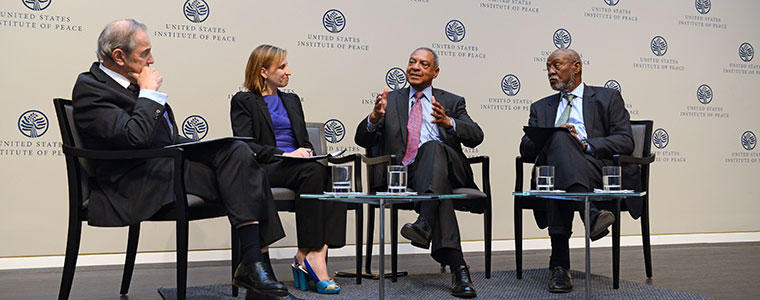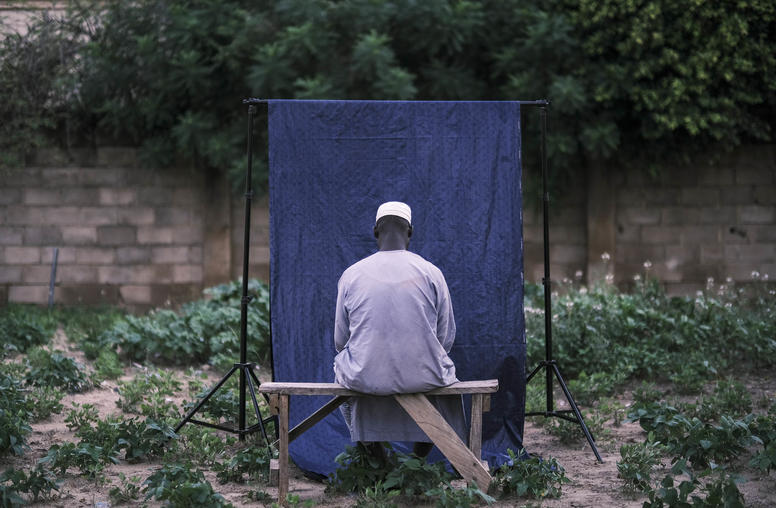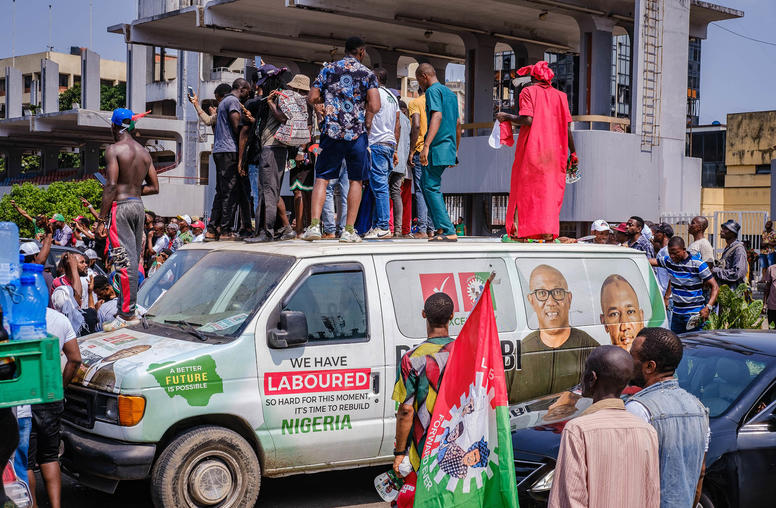U.S. Policy Today for Africa Tomorrow
A Conversation with Ambassadors Carson, Lyman and Moose
Read the Event CoverageOn July 22, Ambassadors Carson, Lyman, and Moose discussed U.S.-Africa Engagement at USIP.

Home to burgeoning economies and brutal civil conflicts – sometimes coexisting in the same country – Africa is increasingly prominent in the foreign policy agendas of world powers. In early August, President Obama will convene most of the heads of state of the 54 nations of Africa in Washington, D.C. for the first-ever summit between U.S. and African leaders. There will be no shortage of issues to discuss, from how to harness Africa's economic growth and lift large sections of its population out of poverty, to growing trade between the U.S. and Africa, to concerns about closing political space in some countries, among many other topics.
In anticipation of the summit, the U.S. Institute of Peace hosted a conversation with some of the foremost thinkers and policymakers on U.S.-Africa relations. This panel of experts discussed themes that could, and should, be prioritized in the summit, as well as strategies for strengthening relations between the U.S. and Africa.
Continue the conversation on Twitter with #AfricaPolicy.
Speakers
- Amb. Johnnie Carson, Senior Advisor, U.S. Institute of Peace
- Assistant Secretary of State for African Affairs (2009-2013)
- Ambassador to Kenya (1999-2003)
- Ambassador to Zimbabwe (1995-1997)
- Ambassador to Uganda (1991-1994)
- Amb. Princeton Lyman, Senior Advisor, U.S. Institute of Peace
- Special Envoy for Sudan and South Sudan (2011-2013)
- Assistant Secretary of State for International Organization Affairs (1996-1998)
- Ambassador to South Africa (1992-1995) Ambassador to Nigeria (1986-1989)
- Amb. George Moose, Vice Chairman, Board of Directors, U.S. Institute of Peace
- Assistant Secretary of State for African Affairs (1993-1997)
- U.S. Alternate Representative to the United Nations Security Council (1991-1992)
- Ambassador to Republic of Senegal (1988-91)
- Ambassador to Republic of Benin (1983-86)



